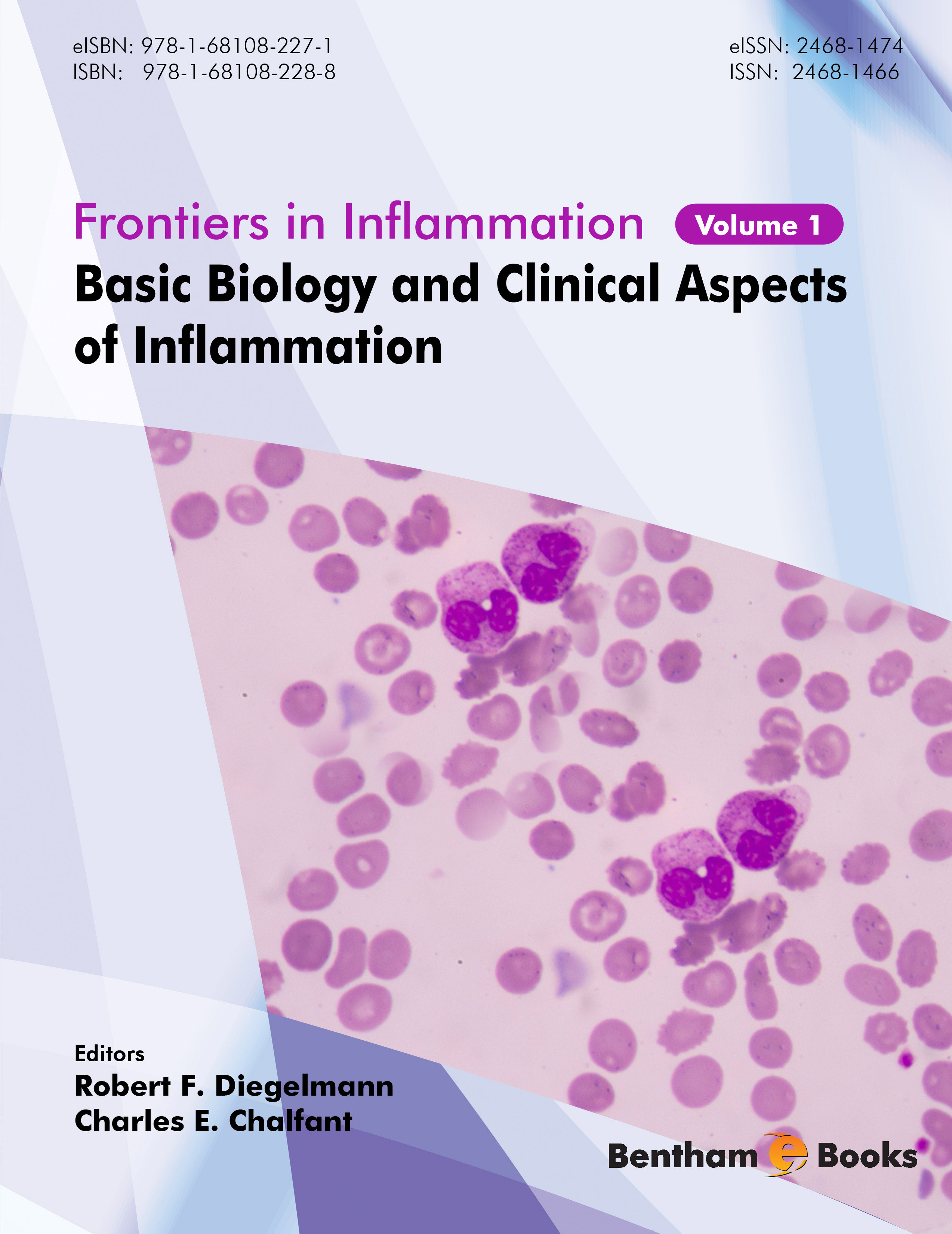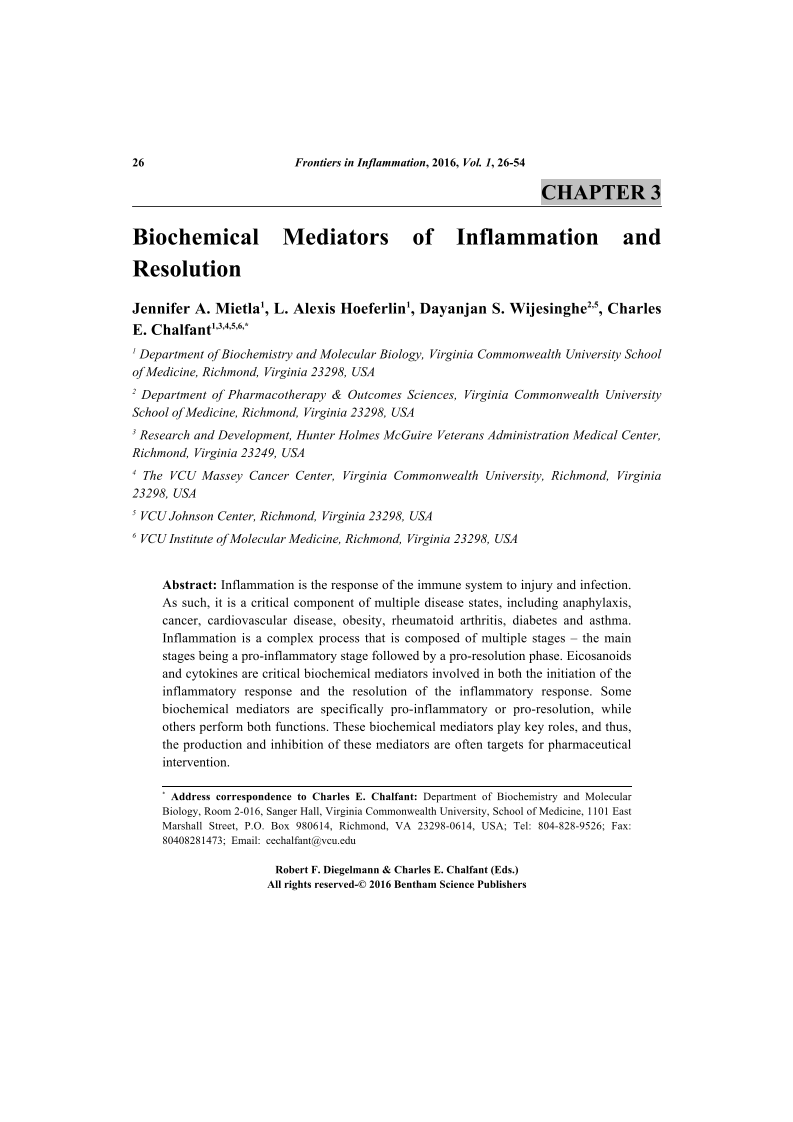Biochemical Mediators of Inflammation and Resolution

- Authors: Jennifer A. Mietla1, L. Alexis Hoeferlin2, Dayanjan S. Wijesinghe3, Charles E. Chalfant4
-
View Affiliations Hide Affiliations1 Department of Biochemistry and Molecular Biology, Virginia Commonwealth University School of Medicine, Richmond, Virginia 23298, USA 2 Department of Biochemistry and Molecular Biology, Virginia Commonwealth University School of Medicine, Richmond, Virginia 23298, USA 3 Department of Pharmacotherapy & Outcomes Sciences, Virginia Commonwealth University School of Medicine, Richmond, Virginia 23298, USA 4 Department of Biochemistry and Molecular Biology, Virginia Commonwealth University School of Medicine, Richmond, Virginia 23298, USA
- Source: Basic Biology and Clinical Aspects of Inflammation , pp 26-54
- Publication Date: March 2016
- Language: English
Biochemical Mediators of Inflammation and Resolution, Page 1 of 1
< Previous page | Next page > /docserver/preview/fulltext/9781681082271/chapter-3-1.gif
Inflammation is the response of the immune system to injury and infection. As such, it is a critical component of multiple disease states, including anaphylaxis, cancer, cardiovascular disease, obesity, rheumatoid arthritis, diabetes and asthma. Inflammation is a complex process that is composed of multiple stages the main stages being a pro-inflammatory stage followed by a pro-resolution phase. Eicosanoids and cytokines are critical biochemical mediators involved in both the initiation of the inflammatory response and the resolution of the inflammatory response. Some biochemical mediators are specifically pro-inflammatory or pro-resolution, while others perform both functions. These biochemical mediators play key roles, and thus, the production and inhibition of these mediators are often targets for pharmaceutical intervention.
-
From This Site
/content/books/9781681082271.chapter-3dcterms_subject,pub_keyword-contentType:Journal -contentType:Figure -contentType:Table -contentType:SupplementaryData105

